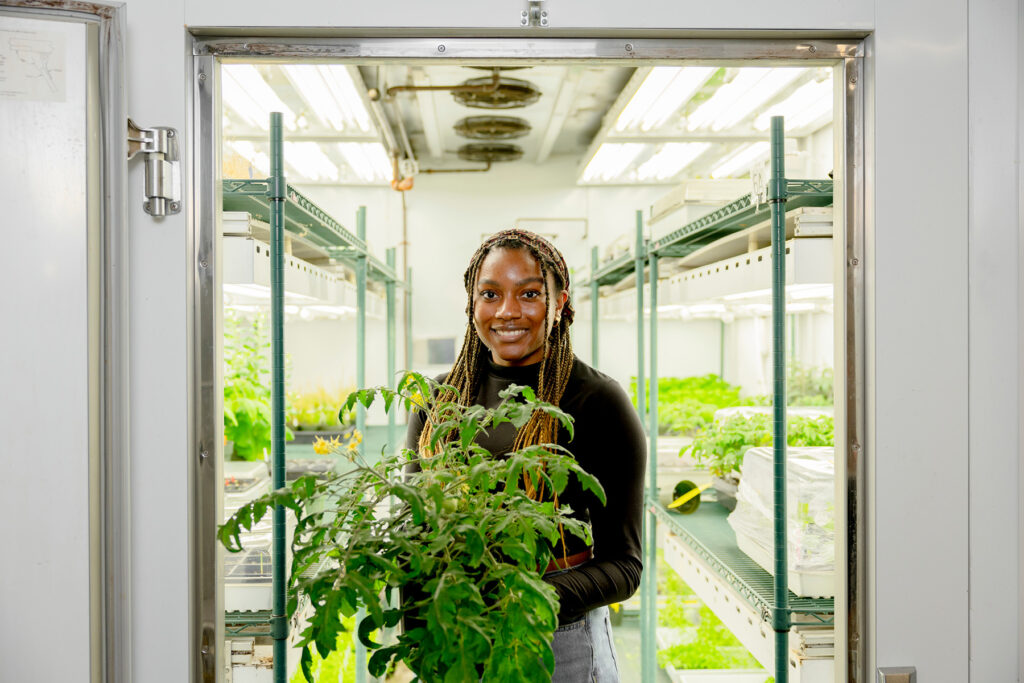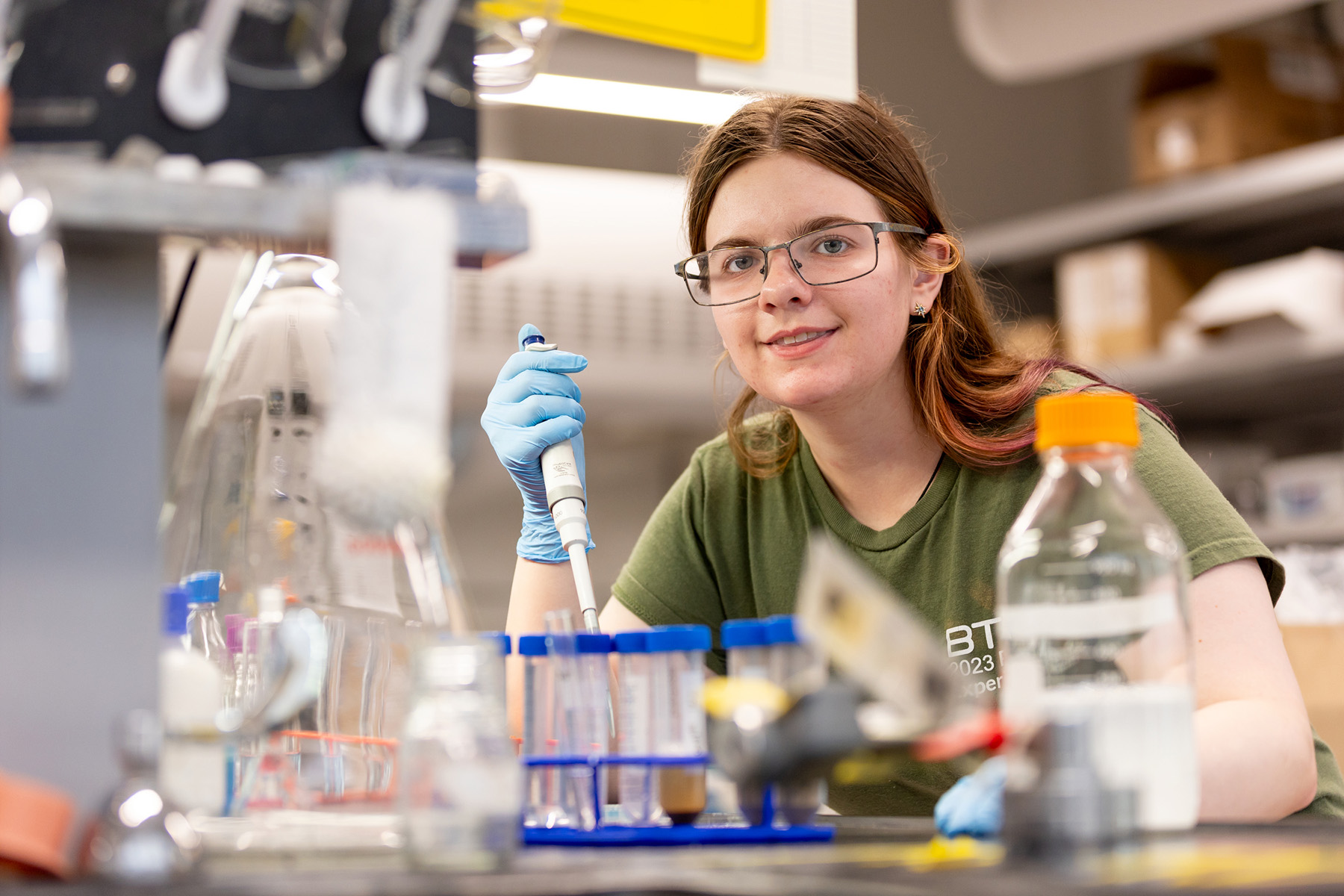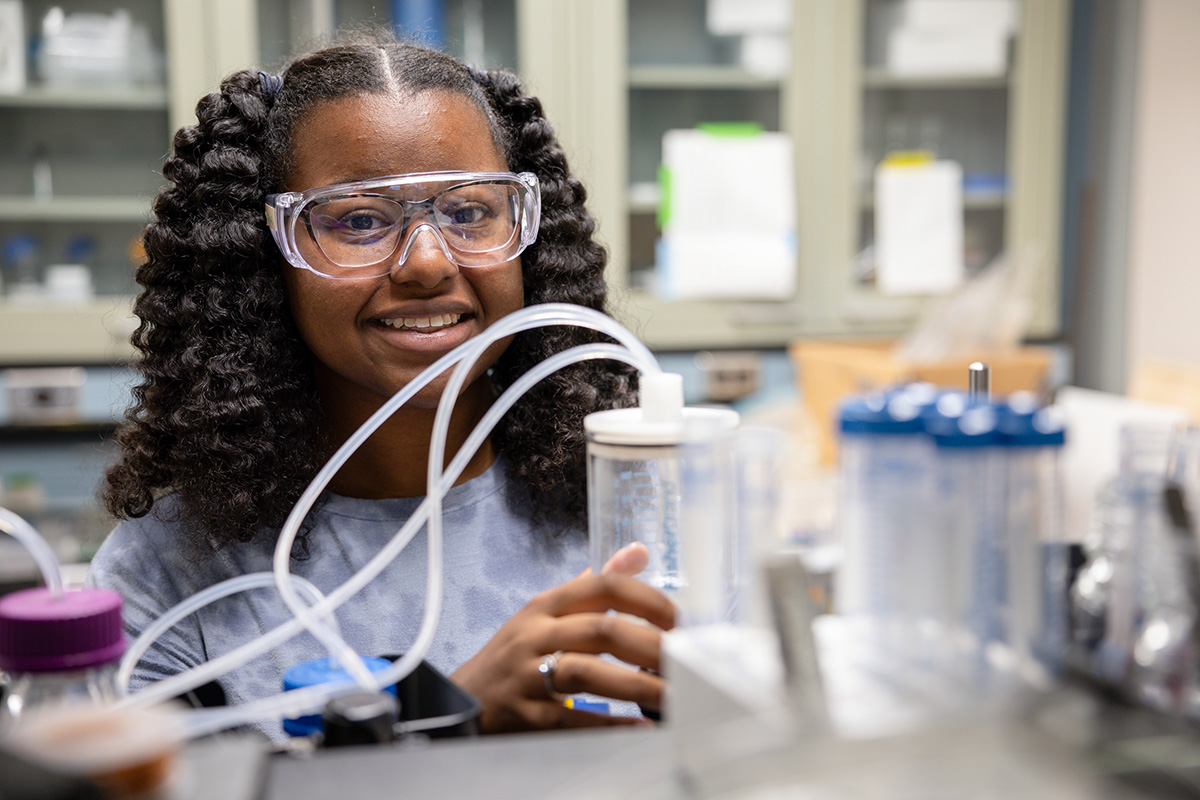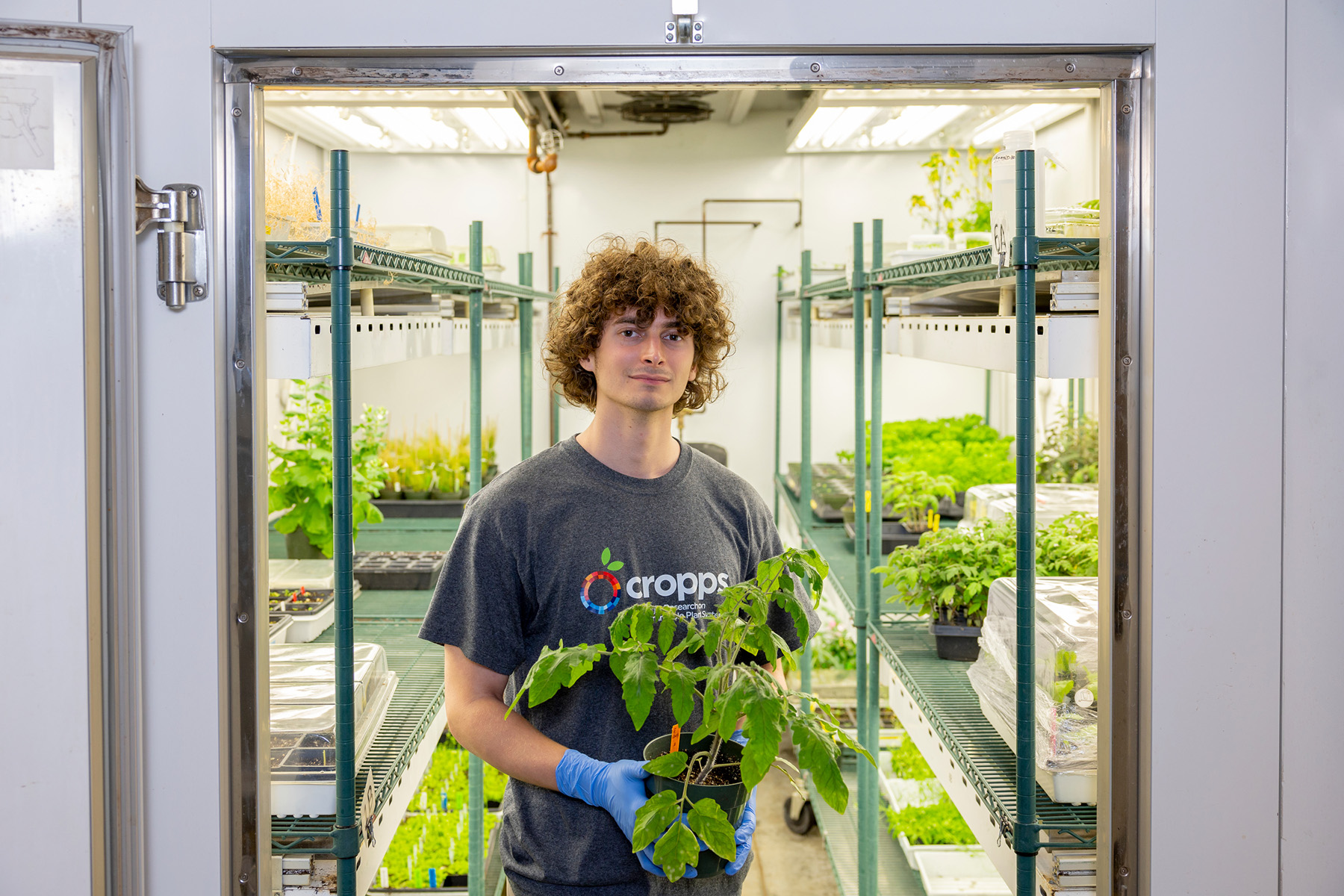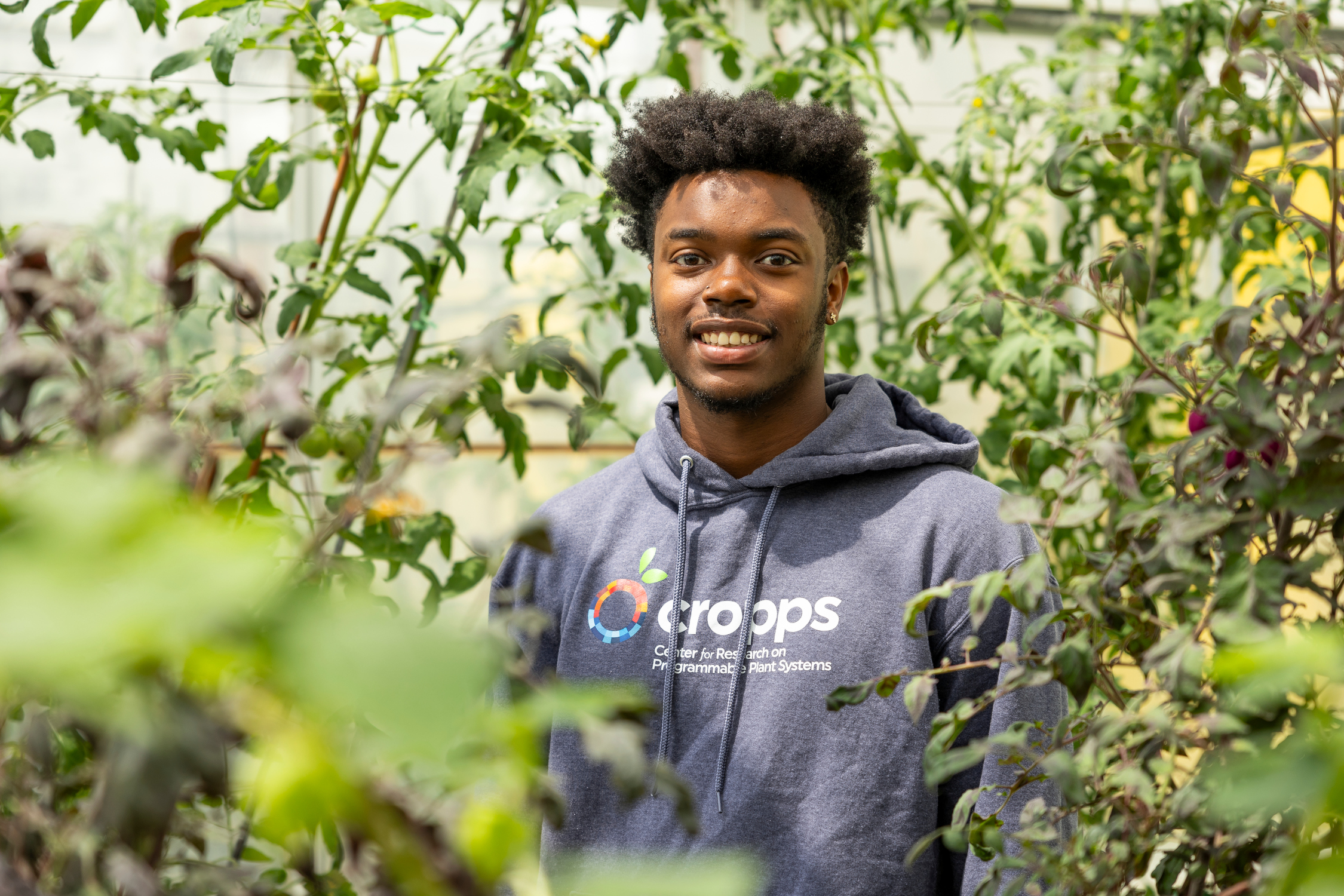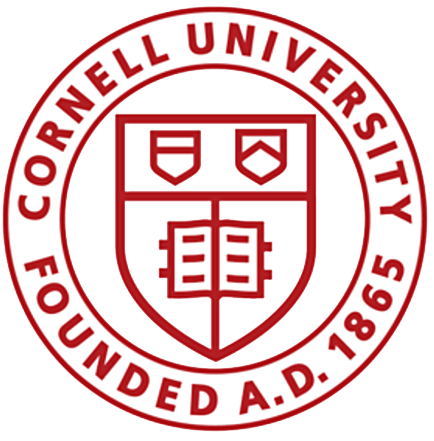Explore the world of research as we delve into the experiences of summer scholars with the Center for Research on Programmable Plant Systems (CROPPS). Join us in conversations with budding researchers as they walk us through their time in the Research Experiences for Undergraduates (REU) program for CROPPS hosted by the Boyce Thompson Institute (BTI) on the Cornell University campus. Gain insights from students Dahlia Isabella Bolt, Lexi Ellis, Jack Greger, Oge Okpala, and Kohl Perry as they engage in discussions about overcoming challenges and revealing the secrets to successful innovation.
Exploring the World of Research
An Inside Look with Oge Okpala from the CROPPS REU Program
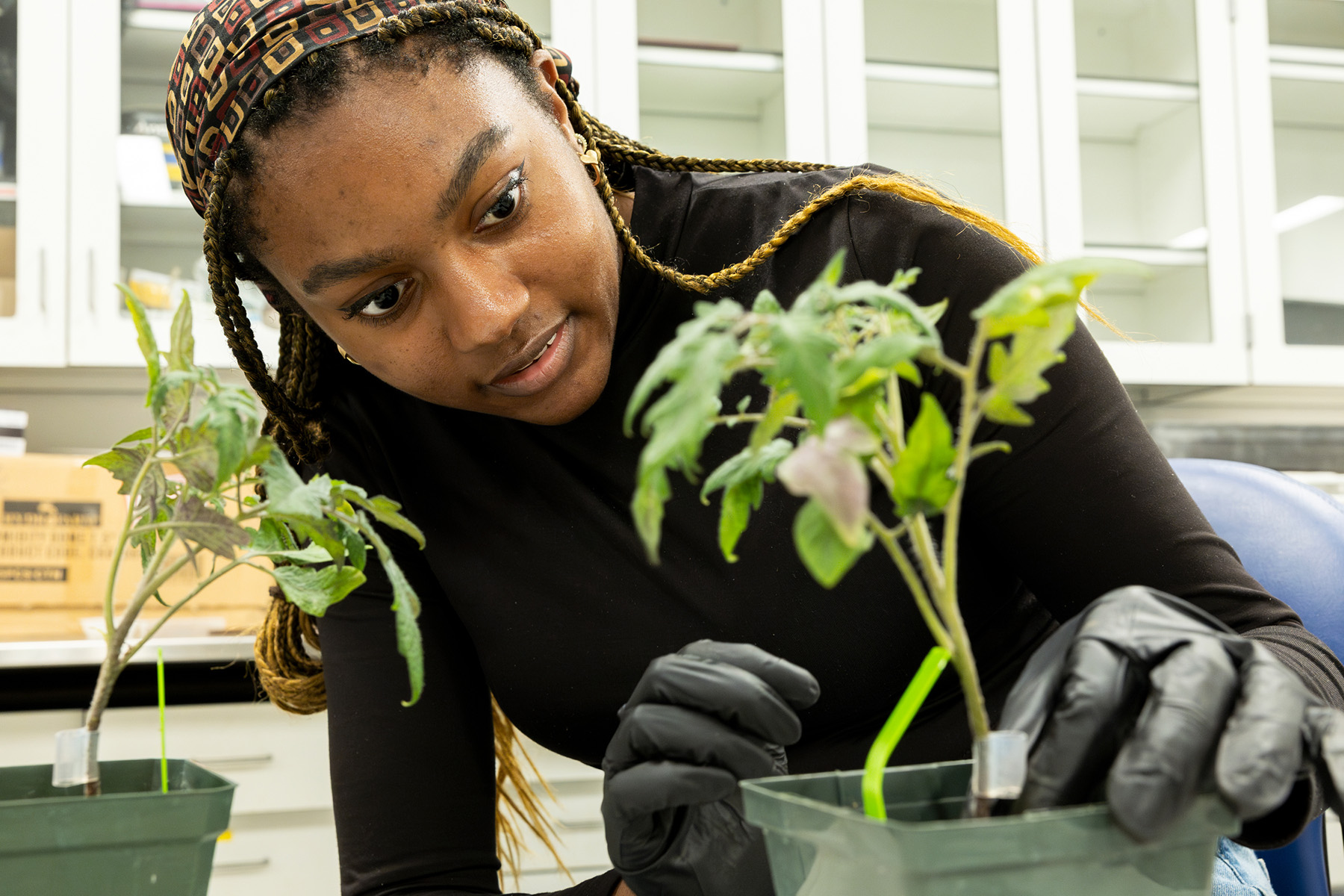
Oge Okpala
- University: University of California, Berkeley
- Major: Integrative Biology and Media Studies
- Graduation year: 2024
- Hometown: Orange County, California
- Projects: “Social, Ethical, and Public Engagement Issues” and “Grafting: Affixing Rootstock to Scion and Joining Local Expertise with Scientific Knowledge to Enhance Plant Performance and Public Engagement”.
- Mentors: Bruce Lewenstein and Margaret Frank
The CROPPS program combines researchers from plant sciences, engineering, computer science, and the social sciences into an integrated program to plant biological research and translation. Tell us about your REU project with CROPPS faculty and fellow students
“This summer, I worked as both a plant biologist and social scientist. As a social scientist, I investigated the utility of the non-traditional research approach of Community-Based Participatory Research (CBPR). With this approach, members of a local community collaborate with scientists to identify and address issues collectively. Drawing from my experience in the Frank lab, I conducted focus groups involving fellow REU interns, members of the Frank lab, and farmers based in Ithaca. The aim was to gauge interest levels in CBPR participation and identify specific CBPR barriers relevant to plant biology. Through these discussions, we uncovered potential solutions to these barriers, such as mitigating barriers to CBPR by building infrastructure in research institutions and funding organizations to both incentivize and support CBPR.
As a biologist, I investigated a timeline of the restoration of symplastic transport during the graft healing process by measuring the density of secondary plasmodesmata (PD). Our method of constructing this timeline involved using fluorescent proteins GFP and TdTom to image secondary PD density under a confocal microscope. I identified GFP and TdTom-tagged tomato plant lines suitable for grafting and subsequent imaging. I also identified inducible callose tomato lines that closed the PD in regions when activated.”
What drew you to join this project?
“I was drawn to this project because it offered the ideal opportunity to practice, hone, and augment the skills that I have from studying both Biology and Media Studies in school. As someone interested in science communication and making science more accessible to the general public by eliminating barriers, a project framed around public engagement with science was especially enticing. I was especially interested in looking into Community Based Participatory Research (CBPR), which I believe is a great approach to mitigating these barriers. This project was the perfect opportunity to pursue this interest.”
CROPPS believes in the power of mentorship for young scientists. Tell us how that mentoring process unfolded for you through your REU summer
“I believe that mentorship is vital to helping budding scientists transition into the scientific field or academia. I think that mentorship for mentees who come from underrepresented backgrounds in science by mentors who are also from the same underrepresented background is especially important. Imposter syndrome can be a large setback for people interested in pursuing a career in science, especially if there are not many people in that field who look like them. As someone who is all too familiar with this experience, I believe that this sort of representation through mentorship is very important for empowering these potential scientists to navigate such professional spaces.”
What is the biggest scientific challenge you want to tackle as you progress in your career?
“The biggest scientific challenge I want to tackle is mitigating the current climate of distrust in science among the general public. I am interested in helping bridge the gap between scientists and the public. However, I want to be careful to acknowledge that certain groups in society have valid concerns regarding the scientific research process. I wish to help both scientists and the people who belong to these groups to work together in acknowledging and mitigating these concerns and past harms.”
What has been your favorite part of the REU program?
“My favorite part of the REU program was meeting fellow interns from across the country, learning from each other, and bonding over our shared experience of working in our respective labs and ultimately growing as scientists.”
How has this summer experience prepared you for the future?
“This summer experience enhanced my laboratory skill set and helped me learn how to think more critically and creatively about experimental design. In terms of my personal growth, I was challenged in ways that pushed me to be more flexible, resourceful, and self-reliant. This independence that I had with some aspects of my project helped me be more confident with the quality of my work. With all these experiences, I believe that in the future I will be less intimidated by more challenging projects. I will also be less discouraged by setbacks and adopt a mindset of perseverance.”

